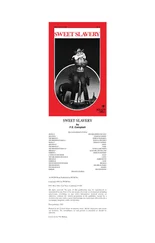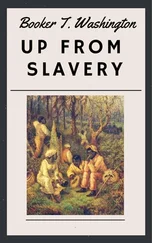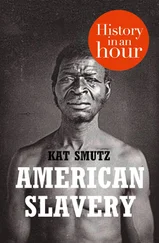Theodore Dwight Weld - American Slavery as It is - Testimonies
Здесь есть возможность читать онлайн «Theodore Dwight Weld - American Slavery as It is - Testimonies» — ознакомительный отрывок электронной книги совершенно бесплатно, а после прочтения отрывка купить полную версию. В некоторых случаях можно слушать аудио, скачать через торрент в формате fb2 и присутствует краткое содержание. Жанр: unrecognised, на английском языке. Описание произведения, (предисловие) а так же отзывы посетителей доступны на портале библиотеки ЛибКат.
- Название:American Slavery as It is: Testimonies
- Автор:
- Жанр:
- Год:неизвестен
- ISBN:нет данных
- Рейтинг книги:4 / 5. Голосов: 1
-
Избранное:Добавить в избранное
- Отзывы:
-
Ваша оценка:
- 80
- 1
- 2
- 3
- 4
- 5
American Slavery as It is: Testimonies: краткое содержание, описание и аннотация
Предлагаем к чтению аннотацию, описание, краткое содержание или предисловие (зависит от того, что написал сам автор книги «American Slavery as It is: Testimonies»). Если вы не нашли необходимую информацию о книге — напишите в комментариях, мы постараемся отыскать её.
"American Slavery As It Is" is a book composed of first-hand accounts of slavery and its horrors. The work focuses on the afflictions that slaves faced, covering their diet, clothing, housing, and working conditions. Harriet Beecher Stowe used «American Slavery As It Is» as the direct inspiration for her novel, Uncle Tom's Cabin.
American Slavery as It is: Testimonies — читать онлайн ознакомительный отрывок
Ниже представлен текст книги, разбитый по страницам. Система сохранения места последней прочитанной страницы, позволяет с удобством читать онлайн бесплатно книгу «American Slavery as It is: Testimonies», без необходимости каждый раз заново искать на чём Вы остановились. Поставьте закладку, и сможете в любой момент перейти на страницу, на которой закончили чтение.
Интервал:
Закладка:
Women are generally shown some little indulgence for three or four weeks previous to childbirth; they are at such times not often punished if they do not finish the task assigned them; it is, in some cases, passed over with a severe reprimand, and sometimes without any notice being taken of it. They are generally allowed four weeks after the birth of a child, before they are compelled to go into the field, they then take the child with them, attended sometimes by a little girl or boy, from the age of four to six, to take care of it while the mother is at work. When there is no child that can be spared, or not young enough for this service, the mother, after nursing, lays it under a tree, or by the side of a fence, and goes to her task, returning at stated intervals to nurse it. While I was on this plantation, a little negro girl, six years of age, destroyed the life of a child about two months old, which was left in her care. It seems this little nurse, so called, got tired of her charge and the labor of carrying it to the quarters at night, the mother being obliged to work as long as she could see. One evening she nursed the infant at sunset as usual, and sent it to the quarters. The little girl, on her way home, had to cross a run, or brook, which led down into the swamp; when she came to the brook she followed it into the swamp, then took the infant and plunged it head foremost into the water and mud, where it stuck fast; she there left it and went to the negro quarters. When the mother came in from the field, she asked the girl where the child was; she told her she had brought it home, but did not know where it was; the overseer was immediately informed, search was made, and it was found as above stated, and dead. The little girl was shut up in the barn, and confined there two or three weeks, when a speculator came along and bought her for two hundred dollars.
The slaves are obliged to work from daylight till dark, as long as they can see. When they have tasks assigned, which is often the case, a few of the strongest and most expert, sometimes finish them before sunset; others will be obliged to work till eight or nine o'clock in the evening. All must finish their tasks or take a flogging. The whip and gun, or pistol, are companions of the overseer; the former he uses very frequently upon the negroes, during their hours of labor, without regard to age or sex. Scarcely a day passed while I was on the plantation, in which some of the slaves were not whipped; I do not mean that they were struck a few blows merely, but had a set flogging. The same labor is commonly assigned to men and women,--such as digging ditches in the rice marshes, clearing up land, chopping cord-wood, threshing, &c. I have known the women go into the barn as soon as they could see in the morning, and work as late as they could see at night, threshing rice with the flail, (they now have a threshing machine,) and when they could see to thresh no longer, they had to gather up the rice, carry it up stairs, and deposit it in the granary.
The allowance of clothing on this plantation to each slave, was given out at Christmas for the year, and consisted of one pair of coarse shoes, and enough coarse cloth to make a jacket and trowsers. If the man has a wife she makes it up; if not, it is made up in the house. The slaves on this plantation, being near Wilmington, procured themselves extra clothing by working Sundays and moonlight nights, cutting cord-wood in the swamps, which they had to back about a quarter of a mile to the river; they would then get a permit from their master, and taking the wood in their canoes, carry it to Wilmington, and sell it to the vessels, or dispose of it as they best could, and with the money buy an old jacket of the sailors, some coarse cloth for a shirt, &c. They sometimes gather the moss from the trees, which they cleanse and take to market. The women receive their allowance of the same kind of cloth which the men have. This they make into a frock; if they have any under garments they must procure them for themselves. When the slaves get a permit to leave the plantation, they sometimes make all ring again by singing the following significant ditty, which shows that after all there is a flow of spirits in the human breast which for a while, at least, enables them to forget their wretchedness. 1
Hurra, for good ole Massa,
He giv me de pass to go to de city
Hurra, for good ole Missis,
She bile de pot, and giv me de licker.
Hurra, I'm goin to de city.
Every Saturday night the slaves receive their allowance of provisions, which must last them till the next Saturday night. "Potatoe time," as it is called, begins about the middle of July. The slave may measure for himself, the overseer being present, half a bushel of sweet potatoes, and heap the measure as long as they will be on; I have, however, seen the overseer, if he think the negro is getting too many, kick the measure; and if any fall off, tell him he has got his measure. No salt is furnished them to eat with their potatoes. When rice or corn is given, they give them a little salt; sometimes half a pint of molasses is given, but not often. The quantity of rice, which is of the small, broken, unsaleable kind, is one peck. When corn is given them, their allowance is the same, and if they get it ground, (Mr. Swan had a mill on his plantation,) they must give one quart for grinding, thus reducing their weekly allowance to seven quarts. When fish (mullet) were plenty, they were allowed, in addition, one fish. As to meat, they seldom had any. I do not think they had an allowance of meat oftener than once in two or three months, and then the quantity was very small. When they went into the field to work, they took some of the meal or rice and a pot with them; the pots were given to an old woman, who placed two poles parallel, set the pots on them, and kindled a fire underneath for cooking; she took salt with her and seasoned the messes as she thought proper. When their breakfast was ready, which was generally about ten or eleven o'clock, they were called from labor, ate, and returned to work; in the afternoon, dinner was prepared in the same way. They had but two meals a day while in the field; if they wanted more, they cooked for themselves after they returned to their quarters at night. At the time of killing hogs on the plantation, the pluck, entrails, and blood were given to the slaves.
When I first went upon Mr. Swan's plantation, I saw a slave in shackles or fetters, which were fastened around each ankle and firmly riveted, connected together by a chain. To the middle of this chain he had fastened a string, so as in a manner to suspend them and keep them from galling his ankles. This slave, whose name was Frank, was an intelligent, good looking man, and a very good mechanic. There was nothing vicious in his character, but he was one of those high-spirited and daring men, that whips, chains, fetters, and all the means of cruelty in the power of slavery, could not subdue. Mr. S. had employed a Mr. Beckwith to repair a boat, and told him Frank was a good mechanic, and he might have his services. Frank was sent for, his shackles still on. Mr. Beckwith set him to work making trunnels, &c. I was employed in putting up a building, and after Mr. Beckwith had done with Frank, he was sent for to assist me. Mr. Swan sent him to a blacksmith's shop and had his shackles cut off with a cold chisel. Frank was afterwards sold to a cotton planter.
I will relate one circumstance, which shows the little regard that is paid to the feelings of the slave. During the time that Mr. Isaiah Rogers was superintending the building of a rice machine, one of the slaves complained of a severe toothache. Swan asked Mr. Rogers to take his hammer and knock out the tooth.
There was a slave on the plantation named Ben, a waiting man. I occupied a room in the same hut, and had frequent conversations with him. Ben was a kind-hearted man, and, I believe, a Christian; he would always ask a blessing before he sat down to eat, and was in the constant practice of praying morning and night.--One day when I was at the hut, Ben was sent for to go to the house. Ben sighed deeply and went. He soon returned with a girl about seventeen years of age, whom one of Mr. Swan's daughters had ordered him to flog. He brought her into the room where I was, and told her to stand there while he went into the next room: I heard him groan again as he went. While there I heard his voice, and he was engaged in prayer. After a few minutes he returned with a large cow-hide, and stood before the girl, without saying a word. I concluded he wished me to leave the hut, which I did; and immediately after I heard the girl scream. At every blow she would shriek, "Do, Ben! oh do, Ben!" This is a common expression of the slaves to the person whipping them: "Do, Massa!" or, "Do, Missus!"
Читать дальшеИнтервал:
Закладка:
Похожие книги на «American Slavery as It is: Testimonies»
Представляем Вашему вниманию похожие книги на «American Slavery as It is: Testimonies» списком для выбора. Мы отобрали схожую по названию и смыслу литературу в надежде предоставить читателям больше вариантов отыскать новые, интересные, ещё непрочитанные произведения.
Обсуждение, отзывы о книге «American Slavery as It is: Testimonies» и просто собственные мнения читателей. Оставьте ваши комментарии, напишите, что Вы думаете о произведении, его смысле или главных героях. Укажите что конкретно понравилось, а что нет, и почему Вы так считаете.












